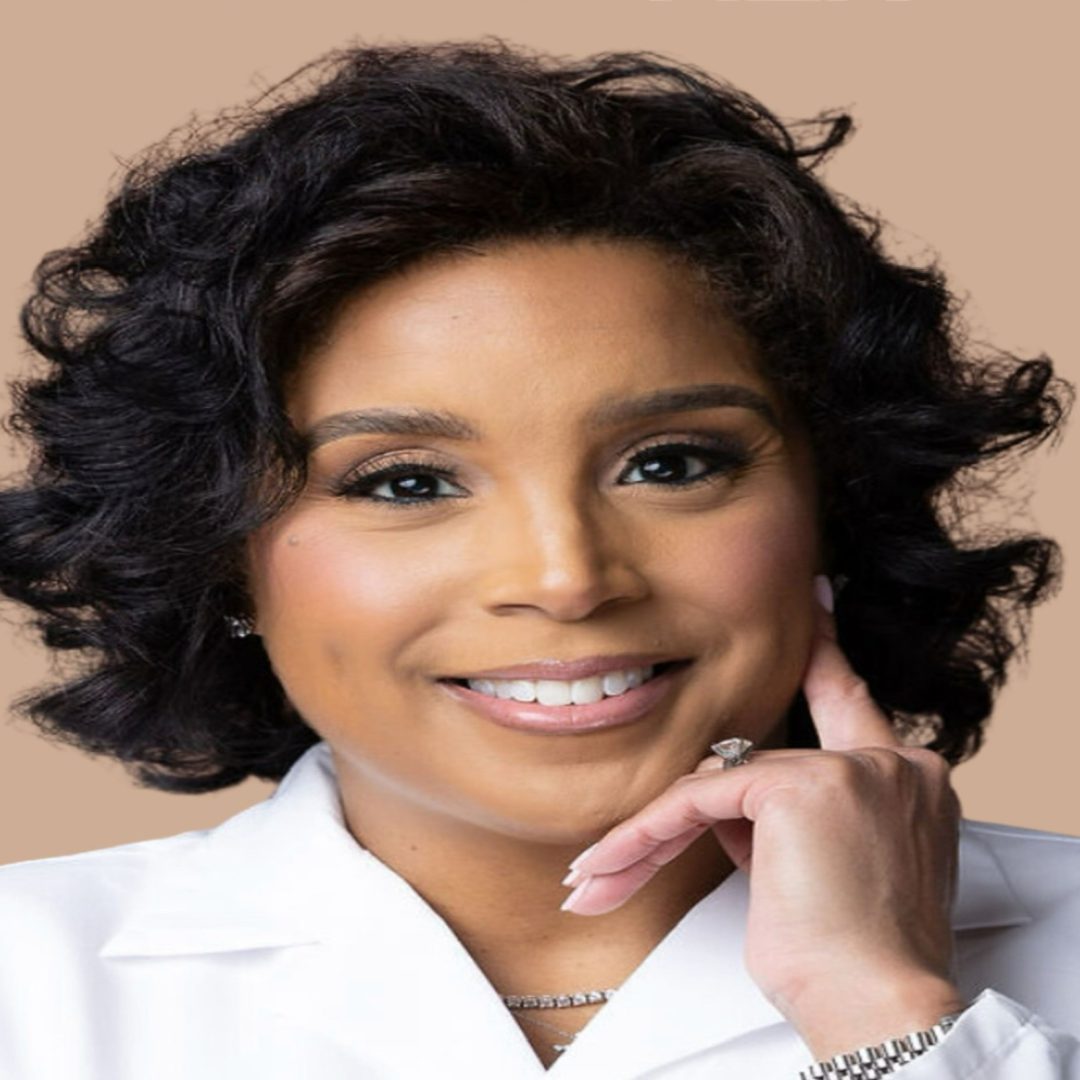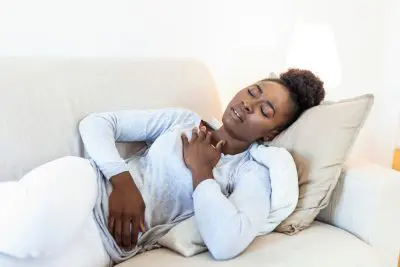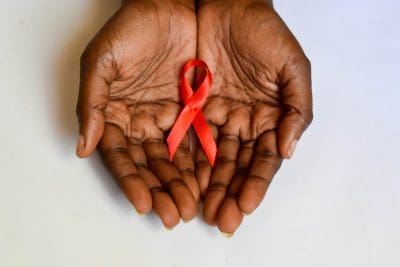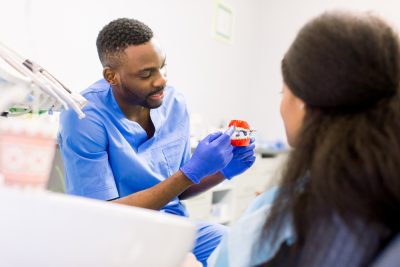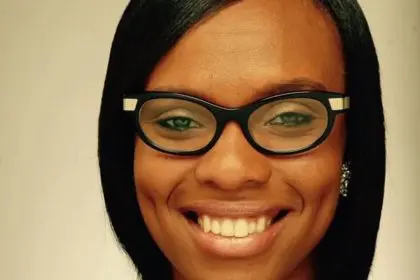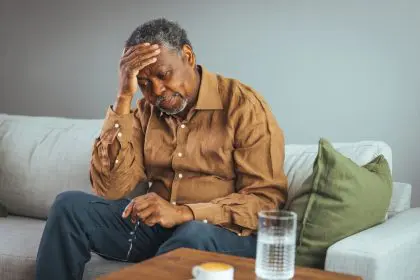Dr. Nichole Butler-MooYoung represents the gold standard in women’s healthcare advocacy. With over two decades of experience as a board-certified gynecologist and Fellow of the American College of Obstetricians and Gynecologists, she has dedicated her career to empowering women through every stage of life. A proud Howard University alumna who completed her medical degree at the University of Illinois College of Medicine in Chicago, Dr. Butler-MooYoung brings both clinical excellence and cultural competency to her practice. Her expertise spans from adolescent health to menopause, with particular focus on uterine fibroids, pelvic pain, and sexual dysfunction.
What drove you to specialize in women’s health?
In talking to my grandmother, who raised me, she said that she remembers that I always wanted to be a doctor. I particularly love working with women because what I found was that women put themselves last. They take care of everyone else, and then they take care of themselves. So it was important to me that women put themselves first, but if they’re not going to, then at least someone like myself can make sure that I keep up with them, keep up with their healthcare needs, and keep them fully functioning for their families.
What are three essential things young women need to know about having agency over their body?
First, she needs to take care of her body. Young women seem to think that they don’t have to pay attention to their health. Your health matters, even when you are a 19 or 18-year-old young lady starting college. Make sure that you continue to take care of yourself whether that is at home on breaks, or if you should have to go to the medical center at school.
The other thing is to be able to ask questions. She can be prepared to have an intelligent conversation with her doctor about what’s needed at this stage in her life, what their recommendations would be, and why, and then to bring up anything that she thinks is a problem. Before you leave the doctor’s office, make sure your questions have been answered. I always ask my patients to bring a list of things, questions they want to ask, and to make sure that at the end of that interaction your questions have been answered.
Very important for her to know that it is her body, and that it should be treated like the princess that she is. If something feels wrong, then she should seek help, not go to TikTok, not go to Instagram. There’s a ton of information on there, and a ton of it is wrong.
What are the key priorities for sexual health and protection?
First of all, condoms are a must, period. They’re not popular, they have never been popular. They’re not going to ever be popular, especially with our young men. I understand that, but our women really do have to start to demand condom use with sexual activity.
The other thing I encourage my patients to be really honest about is their sexual activity. It’s important that they come in and feel that they’re not being judged about how many sexual partners they have, what their sexual orientation is. Those things don’t matter to me as a doctor. My job is to keep you healthy and to keep you from having an unplanned pregnancy. My job is not to judge you. But if you have a high-risk lifestyle, then there is medication out there that can be taken daily, but you have to be honest with me about that.
What are the essential medical tests women should never skip?
We start the Pap smear at 21, I highly recommend that. I am a fan of the HPV vaccine, because we do know that most cervical cancers come from HPV. So I’m a fan of that vaccine for both women and men. For a young woman before the age of 30, I’m going to stress your Pap smear, sexually transmitted infection testing, and discuss contraception if they’re sexually active.
After 30, I’m still stressing the Pap smear. I will start talking about the breast exam and demonstrate the breast exam for our young women under the age of 30, because I just had a patient that’s 27, she had breast cancer. The breast exam is very important. Getting checked for sexually transmitted infections is very important, because chlamydia can cause sterility, and you may not have symptoms.
At age 40, we start the mammogram unless she has a different history. At 45, we’re starting your colonoscopy. At menopause, we’re still continuing with the mammogram and colonoscopy as scheduled, but then we may throw in the bone density test. As African Americans, we do have stronger bones, but they still break, so still very important to check them out.
How can mothers and daughters build trust with their healthcare provider?
Most of my younger women come to me because their mothers are my patients. At this point I have delivered enough babies that they’re coming back in their twenties now to see me as their gynecologist. You have to have the discussion that whatever gets discussed in the room is not discussed with your mother, because she’s my patient, I don’t discuss her business with you, just like I’m not going to discuss your business with her.
I will not break the confidence that I have with a younger patient. Many times I just talk to them about how I was when I was their age. I went to Howard, I was there with all the fun times, I’ve done lots of things. I’ve had lots of experiences, and I would not want to be judged based on the decisions that I made as an 18 or 19-year-old. I share a lot of experiences with my patients, so that they know that I’m a real person. Many times anything you tell me, if I have not done it, one of my best friends has. So you’re not going to shock me in here, and I’m not going to judge you. Let’s just have an open and honest conversation, because honesty is the best way for me to help you.
How should the community address maternal mortality?
It is a huge problem, it continues to be a huge problem. There’s access, that’s a problem. There is practicing medicine where you’re culturally competent. You can speak to a young Black woman in a way that she understands, a way that makes her want to come back to a visit with you, makes her want to disclose the things that are happening.
The medical community has rightfully earned the mistrust of the African American woman. We’ve earned it, and so it is our job to get out of it. How do we get out of it? We get out of it by being authentic, honest. We get out of it by communicating with them, letting them know why things are important, because I have had many patients say, “Oh, my grandmother had 10 kids. She never went to the doctor.”
You have to discuss with them that your grandmother probably did have 10 children, and they did do fine. Her circumstances were different. She didn’t have access, but she also didn’t eat like you eat. Her life was different than yours is now. We have to address the fact that we have a lot of obesity in our community now. We have a lot of heart disease in our community now, and you don’t necessarily feel when your blood pressure is high, but that doesn’t mean that when you come in I won’t notice your blood pressure is much more elevated than it was four weeks ago.
How important is knowing family health history?
That’s really very important, and within our community we don’t talk. So it is the onus of the patient, and first of all, it starts with me as the doctor. I have to go through the history and talk to them, and then many times I send them back with questions. “Ask this of your mother, ask this of your dad. Is your grandmother still alive? Let me know these questions,” and I send them with a list of questions to ask.
They’ll just say, “Oh, everybody in our family had hysterectomies.” Well, that’s not normal. Why did everybody in our family have hysterectomies? Within our community it is many times just, “Oh, we all have diabetes.” Well, we don’t all have to have diabetes. “Oh, we all had hypertension.” Well, we don’t all have to have hypertension. Let’s go through that. It’s really important to have the conversations also about cancer risks and cancer risk factors. And I ask a question of every single patient, “Any history of breast cancer, any history of colon cancer?”
I can’t tell you the number of times I hear, “Oh, I don’t know.” So that’s why I’ve generated a checklist. “Okay, let’s take this back to Mom and Dad or Grandma, or Aunt, or whoever, and see if we can get some answers to this,” not only for your health, but also for your mental health, because that runs in families also.

